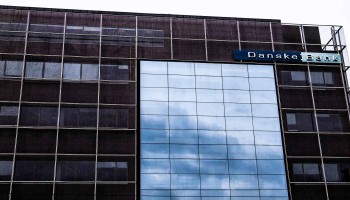Anti-money laundering measures at Danske were sufficient during the period when the alleged money laundering activity took place, said Aivar Rehe who served as CEO of Danske Bank's Estonian branch from 2008-2015 and was CEO of Danske's predecessor in Estonia before that.
"The bank was checked by both the supervisory authorities and the Bank of Estonia. Everything was transparent in that sense," he said.
However, Rehe explained that anti-money laundering rules and regulations were significantly different from the present "if you look at what the economy was ten years ago and what the attitude toward different regions and also the Russian economy was."
"When misunderstandings arose between the states of Russia and Ukraine and the word 'sanction' came up,” he argued “the political direction and, with it, banking changed."
When reminded by Postimees journalists that the Estonian Financial Supervision Authority (FSA) has said that before 2014, their prevention of money laundering was not strong, he responded that they checked the banks on a regular basis “to review the economy, customers, and risks” and that meetings were held with the FSA as well as the Estonian central bank each year.
But catering to Russian non-residents was part of the bank’s strategy as it complied with their client-oriented banking and profit priorities, he explained as he described the work of the private banking department as “everyday work.” He added that he cannot comment on how they pursued clients, what kind of clients they targeted or what their limitations were, as it was “just one unit.”
The FSA has said Danske Bank gave them false information but Rehe refused to comment on that.
When further probed about whether he was aware of employees having personally gained from the practice in exchange for not running checks on clients, as suspected in the wake of assets belonging to employees having been seized, Rehe said he was not aware of any personal gain to employees nor did he himself gain personally.
Rehe’s assertions that Danske Estonia’s internal controls were adequate come despite the ongoing criminal proceedings against the bank in five countries, including Denmark, Brussels, the UK, Germany and the US. Danske Bank's head Thomas Borgen also resigned as a result of the scandal.
In November 2017, criminal proceedings were initiated against the bank's branch in Estonia. To date, ten former Danske employees are suspected of large-scale money laundering. One person has been suspected of taking a bribe.





